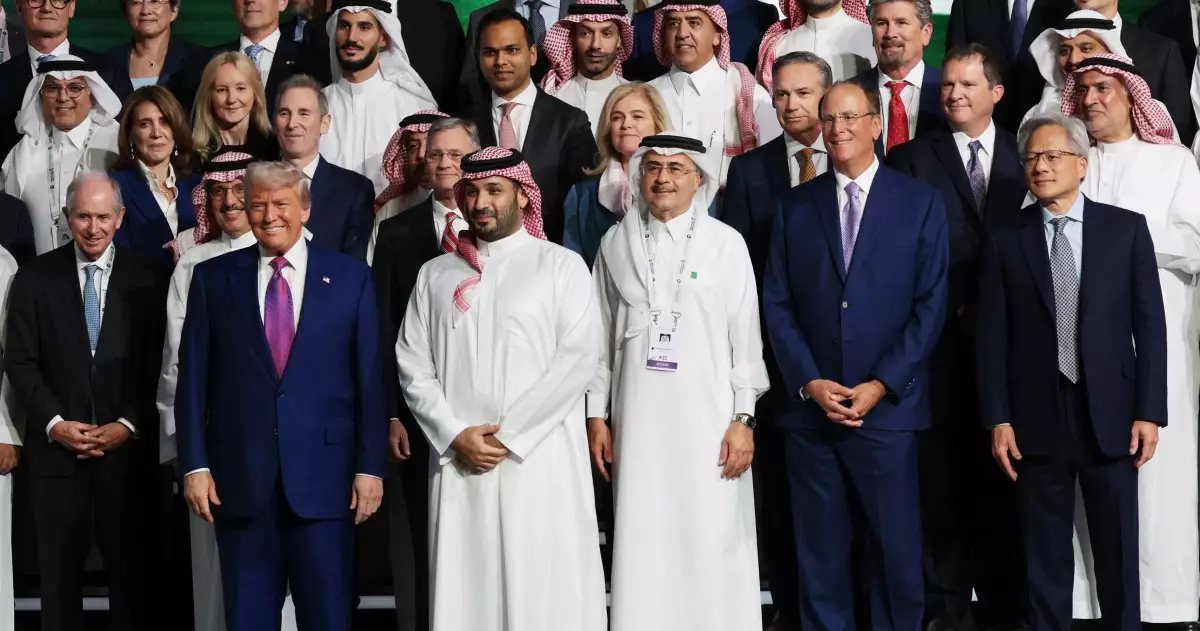In the rapidly evolving landscape of artificial intelligence (AI), Nvidia has emerged not just as a player but as a dominant force in the semiconductor industry, particularly in AI chips. This dominance, however, faces challenges that are both external and internal. The company’s strategic maneuvers indicate a keen understanding of how to leverage political relationships to cement its position in a market that is quickly being reshaped by geopolitics. Thus, we find Nvidia not only competing against rival companies but also combating regulatory frameworks that threaten its market share and innovation pipeline.
Political Ties: The New Competitive Edge
Nvidia’s recent engagement with the Trump administration appears to be a calculated risk, yielding favorable outcomes amid a backdrop of shifting U.S. foreign policies. The U.S. Department of Commerce’s recent decision to lift specific export restrictions on U.S.-manufactured AI chips exemplifies how corporate interests can align with national politics. By fostering a relationship with prominent political figures, Nvidia is securing a path free from the obstacles that once jeopardized its extensive market share, which hovers around 90 percent in AI chips.
The actions of the Commerce Department can be perceived as a tactical retreat from previous regulations such as the Artificial Intelligence Diffusion Rule, which posed significant constraints on exports. This reversal highlights the complexities of navigating an industry at the intersection of technology and international relations. It also signals a willingness to prioritize corporate interests, even to the detriment of more defined global trade practices.
Strategic Responses to Regulatory Threats
Nvidia was vocal in its criticisms of the AI Diffusion Rule, labeling it “misguided.” The company’s proactive responses suggest a strategy of not only weathering regulatory storms but actively engaging in shaping the narratives around them. Such engagement has not merely been reactionary. Instead, Nvidia has strategically positioned itself to benefit from a potentially more favorable regulatory climate that could allow for unimpeded movement of technology across borders, thus enhancing its competitive edge globally.
Moreover, the warning issued by the DOC regarding the use of Huawei’s AI chipset illustrates that the U.S. aims to maintain its lead in the AI sphere. Huawei’s Ascend processors are heralded as potentially transformative for China; thus, the prohibitions laid out serve to reinforce an emerging narrative of national security intertwined with economic competitiveness. Here, Nvidia appears to play both sides, aligning itself with U.S. interests while simultaneously eyeing global developments that may shape future markets and partnerships.
Balancing Innovation With Diplomacy
Nvidia’s CEO Jensen Huang’s rapport with political leaders like Donald Trump further complicates the picture. Huang’s participation in high-stakes discussions concerning AI investments signifies not only a firm commitment to fostering innovations but also showcases the intricate dance between political allegiance and corporate progress. The convergence of tech giants, including Elon Musk and AMD’s Lisa Su, at forums with influential figures such as the Saudi Crown Prince, illustrates an escalating trend where massive investments in AI are closely tied to diplomatic engagements.
The question remains whether reliance on political relationships might bolster Nvidia in the short term while exposing it to future vulnerabilities. The line between advancing corporate interests and navigating the complexities of global diplomacy is tenuous at best. Relying heavily on political ties can lead to instability, particularly if leadership changes or if new regulations emerge that favor competitors.
Outlook on the AI Frontier
As Nvidia continues to chart its course through these complex interactions, the implications go far beyond the company’s immediate business dealings. The decisions made today will shape the future competitive landscape in AI globally. Nvidia’s rising dominance is a testament to strategic foresight, but it also underscores the necessity for constant vigilance and adaptability. The ever-changing relationships between tech and politics could lead to new opportunities or unforeseen pitfalls, making it crucial for Nvidia to maintain its agility in this tightly contested arena.
As it stands, Nvidia’s tactics offer a vivid glimpse into how technology companies can harness political currents to secure advantages in an increasingly competitive market. Whether these maneuvers will result in long-lasting supremacy or merely a temporary edge remains to be seen. The interplay of innovation, rivalry, and diplomacy could redefine what it means to lead in the realm of artificial intelligence moving forward.


Leave a Reply